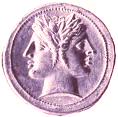
INSTRUCTOR
Owen M. Williamson, MA
In case of absence, or if class is ever cancelled due to circumstances beyond Instructor control, students are still expected to complete and submit all assignments shown on this Calendar page if possible.
![]()
Week
13:
Monday
: Finish video related to course theme if necessary. . [Applies to theme / discipline]Discuss Intellectual activities (e.g., lectures, debates, panel presentations, campus conference, etc.). [Academic success strategies]
Rhetoric of class, ethnicity and gender. [Applies to theme / discipline] [Critical thinking]
EVENT: UTEPís University Career Center is hosting the Government and Public Service Career Fair from 9 a.m. to 3 p.m. on Tuesday, Nov. 16 at the Tomas Rivera Conference Center, 3rd floor of Union Building East on University Avenue.

Friday: Second event report due by Dec. 2. Post to class dropbox.
Turn in Final collective Project by nov. 24 (aLL STUDENTS--one report per group.)
Finish project. Turn in Final Collective Project by Nov. 24 in class. [Applies to theme / discipline.] [Group/team work]
Activity/assignment addressing individual roles and responsibilities in groups. Reference this to Final Project experience.
Ethics. [Critical thinking]
Test-taking strategies.
UNIV 1301 End-of-Semester Feedback administered by the Entering Student Program: Worth 5% of your grade.
![]()
Monday:
-
Read Kennedy (click for link), 124-127 (example).
Wednesday:
None.
Friday:
1. Do Progymnasma 13. . [Applies to theme / discipline]
2. KTEP reports. [Academic success strategiesónote taking] [Critical thinking]

This and all progymnasmata must be completed and posted by Nov. 24!
Progymnasma:
Defend / Attack a Law.
 (Arguing
ab ultrumque partes.)
(Arguing
ab ultrumque partes.)
Instructions: This requires TWO DIFFERENT brief compositions. In your first short composition, passionately defend a proposed or actual law having something to do with your theme, and in your second, passionately attack the same law.
Examples might be:
-
Banning abortion or allowing abortion;
-
Having the government offer productive summer jobs to any student who wants to work but cannot find a job in the private sector, or keeping government out of job creation;
-
An amendment to the US Constitution granting equal rights to women, or refusing to pass such an amendment.
Both your defense and your attack must each cover each of the following factors, one by one:
- legality (is it legal or constitutional?);
- justice (is it just?);
- expediency (is it the correct thing to do at this moment?);
- practicability (is it practical or doable at this time?);
- decency (is it the decent, humane, caring or civilized thing to do?);
- consequences (describe the good consequences if your argument were accepted, and the bad consequences if it were to be rejected).
Your introduction paragraph should consist only of your thesis sentence, plus a discussion of the legality (or constitutionality) of the law in question. Use an essay format, but number your points if you wish. Your final paragraph should very briefly: a. discuss the positive consequences of accepting your arguments, and b. show the bad consequences if it is rejected. No additional introduction or conclusion is needed. Do not use the five-paragraph format. Do not use silly or ridiculous arguments! Use pathos, ethos and logos in each composition. Carefully follow the example provided in Kennedy 124-7 for style and length of each composition.
|
E-mail omwilliamson@utep.edu |

